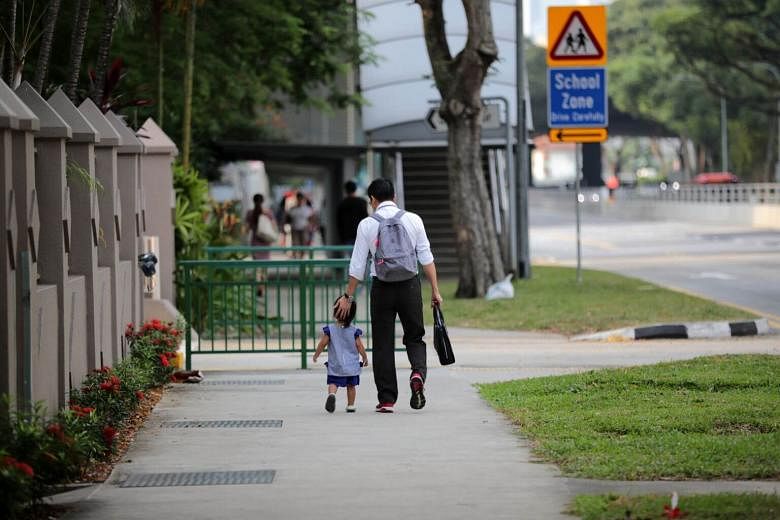We applaud the Government's latest efforts to encourage more Singaporeans towards marriage and parenthood (Lower pre-school expenses for many families from 2020, Aug 29). However, we are also concerned that two in three fathers did not take any paternity leave last year (6 in 10 dads did not take paternity leave last year, says MSF, Aug 7).
We believe that more can be done to encourage parenthood with respect to fathering.
One way to foster involved fathering is to educate men about the hormonal and brain changes they undergo when they become fathers.
Research found that a man experiences significant decrease in his testosterone just before or just after the birth of his first child. The lower his testosterone, the more likely he is to release other hormones like oxytocin and dopamine, which are key reward and bonding hormones, allowing fathers to care and interact with his baby and engage in baby-related tasks in the house, building a stronger bond and feeling contented while doing so.
Another study revealed that the changes triggered in the brains of new mothers were also seen in the brains of new fathers, in areas having to do with attachment, nurturing, empathy, and appropriate interpretation of baby's behaviour.
Educating fathers about how their bodies change to prepare them for fatherhood could assure them that they have what it takes to be an active father and motivate them to engage in fathering more actively.
Another way to encourage active fathering is to educate dads about the positive impact they have on their children's intellectual, social, linguistic, and mathematical development.
Dads who have more regular, warm, engaged, and creative father-child play have kids who do better in vocabulary, reading and mathematics. The children also experience better well-being in the area of mental health.
Ongoing father involvement are associated with a child's social skills.
When fathers are made well aware of their biological readiness to contribute as dads in unique, irreplaceable ways to their children's development, it would raise their confidence and boost their likelihood in making necessary adjustments to be more involved and active fathers.
Raphael Zhang
Family Life Specialist
Focus on the Family Singapore

